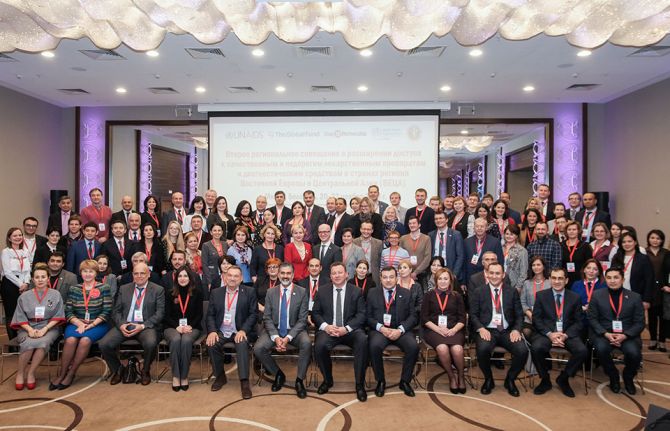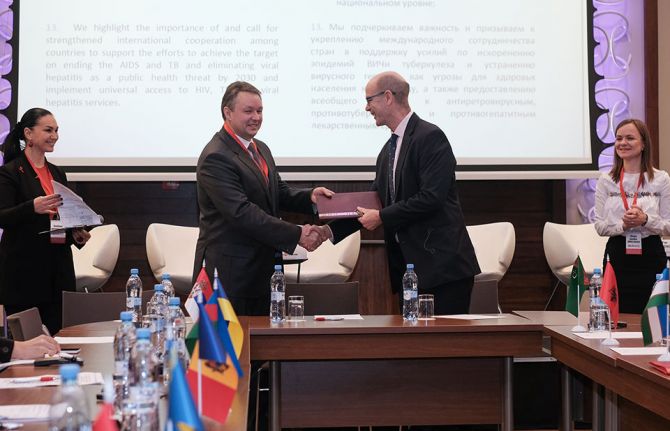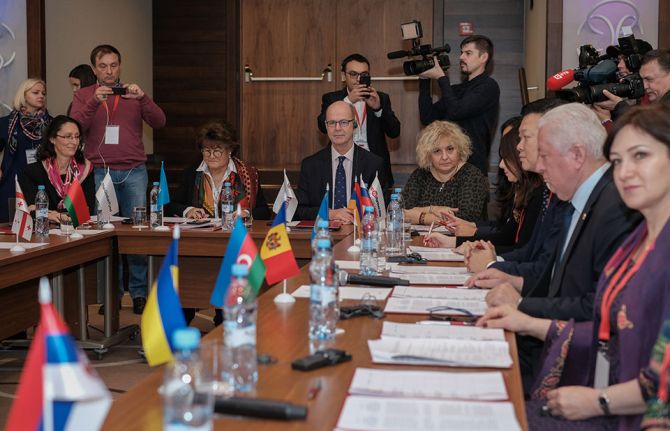



Feature Story
Countries in eastern Europe and central Asia agree to expand access to a range of medicines
26 November 2018
26 November 2018 26 November 2018On 22 November, at a meeting held in Minsk, Belarus, countries from across eastern Europe and central Asia signed the Statement on Expanding Access to Affordable and Quality Assured Medicines and Diagnostic Technologies for HIV, Tuberculosis and Viral Hepatitis (Minsk 2).
In Minsk 2, countries in eastern Europe and central Asia commit to make urgent use of the best global practices and available tools to ensure the quality, safety and efficacy of health products and reduce the prices of essential HIV, tuberculosis and hepatitis C medicines and diagnostics in the region. The statement, among other things, envisages the revision of procurement mechanisms, the use of international and joint procurement and consultations and negotiations on price policy with medicine suppliers.
“In Minsk, the countries of eastern European and central Asia adopted a set of new, tangible, urgent actions. The countries will learn and share many lessons while implementing the Minsk 2 statement, which will help to lower prices, improve quality and save lives,” said Tim Martineau, UNAIDS Deputy Executive Director, Programme, a.i.
During the meeting, the Mayor of Minsk signed the Paris Declaration to end the AIDS epidemic in cities, becoming the fourth city in eastern Europe and central Asia to join the network of more than 300 cities and regions worldwide that are committed to Fast-Track their local HIV responses and to reach the 90–90–90 targets by 2020.
“The signing of the Paris Declaration by Minsk gives a boost to our capital’s goal to stop the spread of HIV by mobilizing officials, the workforce and public associations,” said Valery Malashko, Minister of Health, Belarus.
Belarus continues to make progress in its AIDS response. In 2016, Belarus was validated by the World Health Organization as having eliminated mother-to-child transmission of HIV and congenital syphilis. Belarus implements a full range of HIV policies and programmes with government support and funding, including harm reduction programmes for injecting drug users and antiretroviral therapy for people living with HIV. In 2017, Belarus rolled out HIV self-testing, selling self-testing kits in pharmacies.
“As civil society we believe that the simplest universal solution to ensure access to resources is to change political principles and priorities. People’s lives must be a priority,” said Dmitry Sherembey, from the All-Ukrainian Network of People Living with HIV.
Also during the meeting, eight international organizations signed an agreement to establish a regional interagency group to support the coordinated efforts and implementation of Minsk 2, focusing on results and impact at the country and regional levels.
“Closing the gap to cost-effective, equitable and sustainable access to quality medicines and diagnostic technologies requires further effective collaboration and political leadership in eastern European and central Asian,” said Zsuzsanna Jakab, Regional Director for Europe, World Health Organization.



